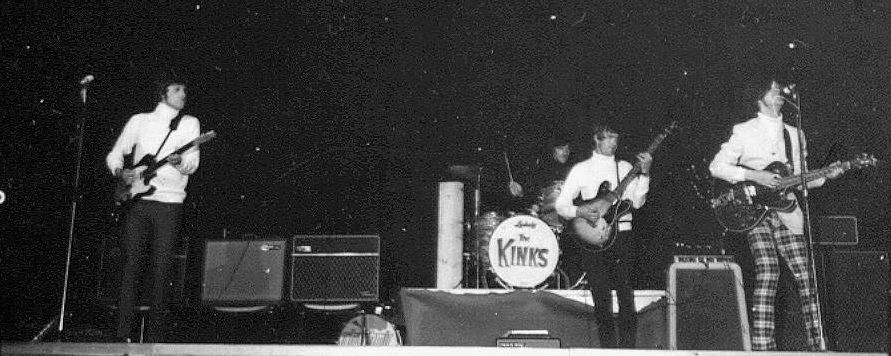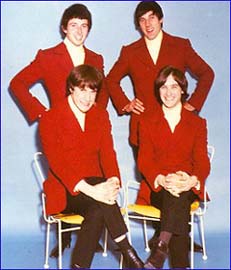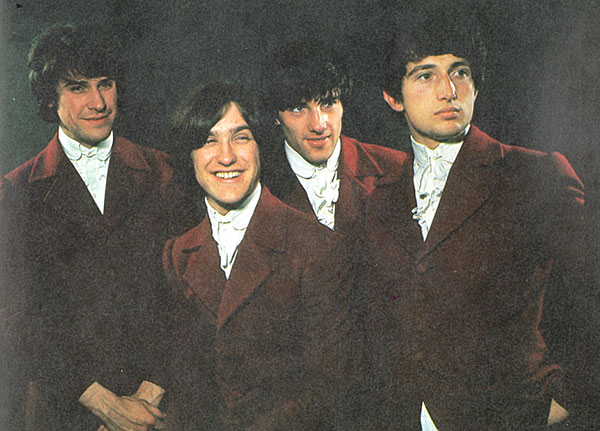| 19 May. Capitol Theatre,
Cardiff, Wales. The flamboyance of the ensemble and the rigors of
touring and recording contributed to tensions that already existed in
the band. Besides the arguments between the brothers, Mick Avory knocked
Dave Davies unconscious. During a concert with frustrations over the size
of the stage and the band's placement on the program, Dave kicked over
Avory's drum kit in a fit of anger. Avory, also with a fair level of frustration,
knocked "Dave with his hi-hat stand." Dave Davie's head needs
16 stitches. The noise of the impact, the blood, and Dave's crumpled body
led Avory to believe he had killed the guitarist. He fled the auditorium.
Later in the year, if their antics in the UK were not exciting enough,
the US Federation of Musicians banned them for four years for failing
to show up for a performance (and for striking an FoM representative).
(Hinman 2004: 55) |
| 21 May. "Set Me Free"
/ "I Need You" [Pye 7N 15854] UK #9, US #23 |
| 30 July. "See My Friend"
/ "Never Met a Girl Like You Before" (Pye) UK #10 |
| 17 September. Kwyet
Kinks [Pye NEP 24221]: "Wait Till the Summer Comes Along,"
"Such a Shame," "A Well Respected Man," "Don't
You Fret" |
| 4 November.
"Well Respected Man" / "Milk Cow Blues" (Pye export) US #13 |
| 19 November. "Till
the End of the Day" / "Where Have All the Good Times Gone" (Pye) UK #6,
US #50 |
| 26 November. The
Kinks Kontroversy [Pye NPL 18131] |
| |
| 1966 [RD 22-23, DD 19-20] |
| 25 February. "Dedicated
Follower of Fashion" / "Sittin' On My Sofa" (Pye) UK #4 |
| 3 June. "Sunny Afternoon"
/ "I'm Not Like Everybody Else" (Pye) UK #1, US #14 |
| 2 September. Well
Respected Kinks [Marble Arch MAL/S 612] |
| 28 October. Face
to Face [Pye NPL 18149] |
| 18 November. "Dead
End Street" / "Big Black Smoke" (Pye) UK #5 |
 |

